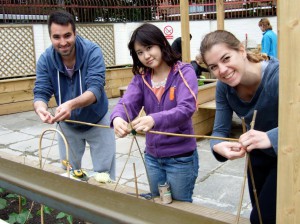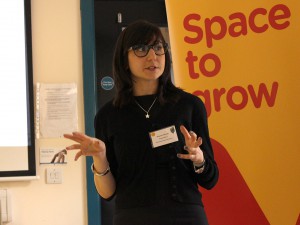
Concern on social and health inequality is growing in the UK. Four years after the Marmot Review set out the evidence demonstrating the relationship between health and social and economic conditions, we have had another call for an agenda more focused on social inequalities, this time from Natural England.
In its recent report Natural solutions for tackling health inequalities Natural England highlighted how health inequalities are the result of widespread social and economic inequalities. In fact, so close is the relationship between social and economic factors and health, that there is a clear correlation between social-class and life expectancy.
In reading the report, what struck me was the huge impact of social inequality on the length of a disability-free life. This is confirmed by “Inequality in Healthy Life Expectancy at Birth by National Deciles of Area Deprivation” published by the Office for National Statistics in March 2014.
Men in the least deprived areas can expect to live a further 19.3 years in good general health than their counterparts in the most deprived areas; for women this is even longer at 20.1 years.
The positive note coming out of the Natural England report is that the more effective use of the natural environment has clear benefits to health. A TCV Green Gym® case study was included within the report, to demonstrate how the natural environment can offer cost-effective solutions to address health inequalities and produce positive physical and mental health outcomes across all age groups.
However it is a challenge for environmental organisations to measure the impact that they have on their volunteers’ personal wellbeing in an effective and consistent way. Thus enabling them to build a stronger evidence base and secure support from health commissioners by, for example, demonstrating benefits to personal development, health or behaviour change.
In order to fill this gap in knowledge, for the past three years The Conservation Volunteers has been running the Green Impacts Project focusing on the self-reported impact of volunteering. The Project culminated with the launch of the Volunteering Impacts Report that was recently presented at the 20th Voluntary Sector and Volunteering Research Conference organised by NCVO, VSSN and IVR.
In line with the Natural England’s report, the Volunteering Impacts Report found that environmental volunteering has a positive impact on an individual’s health, wellbeing and pro-environmental behaviours and this impact increases over time. The results of the research have identified four key findings about the impacts of volunteering on those who volunteer:
- Volunteering has a greater effect on the most deprived. Volunteers from the most deprived areas in the country, according to the Index of Multiple Deprivation, show the most change as a result of their volunteering experience, which includes a marked positive change in how those individuals engage with their local community.
- Active volunteering has a greater effect on the most unhealthy. Active outdoors volunteering (e.g. planting trees or litter picking) results in those with the poorest wellbeing, physical and mental health making the most improvement.
- Women change their behaviour 3 times more and faster than men. Positive changes in both attitude and behaviour stemming from volunteering occurred much faster in women than men, with men needing to volunteer for longer periods to achieve positive behaviour changes.
- Trained volunteers receive the greatest benefits. Volunteers who are given training and advance into positions of responsibility report greater improvements in their health and wellbeing.
Echoing the evidence presented in the Natural England’s report, disadvantaged groups seem more likely to benefit the most from engaging with the natural environment.
Can the environment change the way in which we tackle social and health inequality? The potential is there. We just need to find creative ways to release this potential.
In order for natural solutions to have a significant impact on health in the next few years, environmental organisations need to collect evidence in a more standardised way, create original partnerships with charitable organisations focused on addressing social and health inequality (e.g. TCV’s partnership with Mind), and secure the needed public and private support by raising awareness about the many and varied benefits of the environment to the people who engage with it.
For more information, please contact Roberta Antonaci, TCV Policy Assistant, at r.antonaci@tcv.org.uk or 020 72788508.
Roberta works on policy, research and data analysis at TCV. She believes in the importance of treasuring wildlife as a way of enhancing our quality of life and preserving natural habitats. In her spare time, she enjoys expressing her creativity through painting and photography. She also likes spending her time outdoor and organising activities to support local community groups.

